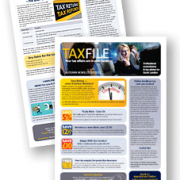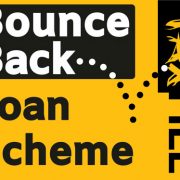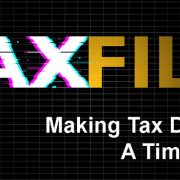Construction Industry Scheme (CIS): How to Claim a Tax Refund
 It’s now time to start the process of claiming your tax refund if you are a subcontractor working within the construction industry and have been paying tax, in advance, through the Construction Industry Scheme (‘CIS’). In this article we will tell you how you qualify and how to claim your tax refund. First, though, a little bit of background to the scheme:
It’s now time to start the process of claiming your tax refund if you are a subcontractor working within the construction industry and have been paying tax, in advance, through the Construction Industry Scheme (‘CIS’). In this article we will tell you how you qualify and how to claim your tax refund. First, though, a little bit of background to the scheme:
The CIS Scheme
The Construction Industry Scheme, or CIS, is a scheme whereby a contractor in the construction industry usually deducts a proportion of the money due to their subcontractor, at source. The deducted amount is then passed direct to HMRC and counts towards the subcontractor’s tax and National Insurance, the tax element effectively being paid in advance. The exact proportion deducted depends on whether the subcontractor concerned has registered under the CIS system. If the subcontractor has not registered, the deduction will usually be made at a rate of 30%. If they have already registered, then the deduction will usually be made at a rate of 20%. Either way, by the financial year end, the amount of tax deducted at source will usually end up being more than they really needed to have paid, simply because it won’t have factored in the personal allowance which every UK taxpayer is entitled to (most UK citizens can earn up to £10,000 before paying tax at time of writing, this figure being set to rise to £10,600 in the tax year 2015-16, 10,800 a year later then increasing to £11,000 by 2017-18 following the recent budget proposals). Hence, many subcontractors in the construction industry will be due a tax refund because of the overpayment. The good news is that the time to apply for the refund is pretty much now, so get in touch if you’d like our help claiming.
What kind of work does CIS cover?
You qualify to be in the CIS system if you are a subcontractor who supplies construction work to buildings. This includes labouring, decorating, site preparation and refurbishment but excludes things like architecture, surveying services, the hire of scaffolding without labour, the fitting of carpets, the delivery of materials, and finally non-construction type services such as site facilities (canteens etc.).
What if your business is not in the UK?
Even if your business is abroad, the same rules apply if you work as a subcontractor within the UK. However there are some slightly different rules regarding the treatment of taxation for non-resident workers from countries which have ‘Double Taxation’ treaties with the UK (we can, of course, also help with that — just get in contact).
Registering for CIS
If you haven’t already registered for CIS as a sub-contractor, Taxfile can help to do this for you. You’ll need to be registered for Self Assessment (we can also help with this) and this will give you your UTR (unique taxpayer reference) number. We’ll also need your name, National Insurance number, your legal business/trading name and contact details. Once registered with CIS one of the immediate benefits will be that you’ll then have tax deductions made at the 20% rate rather than at 30%, which would otherwise be the case. If your business is a legal partnership you will also need to register it for CIS but this would need to be done in addition to being registered as an individual or sole trader. Of course, Taxfile can help with that too. Once you have been registered with CIS and have passed certain eligibility criteria, it is also possible to apply for ‘gross payment status’ meaning that you’ll then be paid by the contractor without the usual ‘at source’ deductions. Instead you’ll need to pay any outstanding tax and National Insurance at the financial year end; however HMRC will review your business each year to check that you still qualify for this status (paying tax late and/or submitting returns late would put your gross payment status at risk).
Offsetting Expenses against your tax
Taxfile can also help you to offset certain expenses against your subcontractor income. This means that any tax refund will be larger — or any tax outstanding will be lower. We can offset VAT, certain materials, equipment, tools and any plant hired for the work you supplied. However, we can only do this if you keep good records – and receipts – for the expenses in question. We’ll also need to see copies of the monthly statements which the contractor will have supplied you throughout the year.
Keeping Good Records
Taxfile can help their CIS customers to keep good income and expenditure records by supplying them with a free online accounting package called ‘Sage One Cash Book’. All Taxfile clients are eligible for this so just contact us if you are interested. It is free because it will help us, as well as our clients, since it allows us to collaborate with clients on their accounts in real time. (More info).
Copies of bank statements or – better still – electronic bank statement downloads from online banking accounts will also make things even easier and faster for both the subcontractor and Taxfile so ask us about the various options available, or read more about sharing your bank statement information electronically here.
TIP! Using a debit card to pay for your expenses and tools means that you/we will always have a record of your expenses even if you ever lose your receipt(s).
How do you claim your CIS tax refund?
For sole traders and partnerships Taxfile can help to fill out and submit the required Self Assessment tax return, including details of the amounts you have invoiced as a subcontractor and a note of any allowable expenses which can be used to offset your income and thereby lower your tax and National Insurance bill.
For Limited companies which have ‘gross payment status’ (see above) we can help to fill out and submit the required Corporation Tax Return, help with payroll (particularly important in the case of CIS deductions for Limited companies), make sure that your ‘FPS’ and ‘EPS’ submissions have been made to HMRC accurately and on time and finally help to fill out and submit CIS132 forms when and where applicable. Combined, these will allow HMRC and Taxfile to agree the correct tax and National Insurance and any outstanding balance due.
Either way, if you’d like help claiming your CIS refund or getting your tax and National Insurance as a subcontractor right, come in and talk to us in our South London office in Tulse Hill or contact us on 0208 761 8000. You can alternatively Skype us at ‘taxfile’ (without the inverted commas) or book an appointment with one of our CIS tax advisers here. If you’re a new client the first 20 minutes is free and without obligation but do, please, remember to bring in your records etc. Once you’re a client you can call us any time for any help and advice you may require in relation to tax, National Insurance and CIS.
We’re a CIS one stop shop!
By the way, we can also help new subcontractors to set up as sole traders, partnerships or limited companies, with a bank account, and to register with HMRC as appropriate — we’re a CIS one-stop-shop!
Discounts available for help with CIS
- We are highly knowledgeable, very experienced and good value for CIS tax refund work.
- What’s more, longstanding CIS Taxfile clients will receive a loyalty discount (the amount will vary depending on how long they have been a Taxfile customer);
- A further discount is available for introducing a friend or work colleague who later becomes a Taxfile client;
- yet another discount is available for writing a testimonial which we can publish on our website or literature.
Saturday opening
As well as being open Monday to Friday, we will be open on Saturdays during the very busiest CIS refund period (from early April) and it may help some subcontractors to know that we speak English, Russian and Polish, as well as several other languages.
Call us on 0208 761 8000, Skype us at ‘taxfile’ (without the inverted commas) or book an appointment with one of our CIS tax advisers without obligation. Remember to bring in your records etc. The good news is that 9 out of 10 subbies using Taxfile receive a tax refund within 3 to 4 weeks, most receiving over £1000! We’re also very well trusted by HMRC so less than 2% of our 500+ CIS submissions per year are ever queried by them.
Final note: do not confuse the CIS scheme (above) with the CSCS scheme. While both relate to working in the construction industry, CSCS (the Construction Skills Certification Scheme) relates to the skills certification scheme which, through the issuing of CSCS cards, provides proof that workers on UK construction sites have obtained the requisite training and qualifications for the type of work they intend to carry out on the site. More information about CSCS and obtaining CSCS cards is available here.
Learn more about our tax & accountancy services for contractors and subcontractors in the construction industry here.








